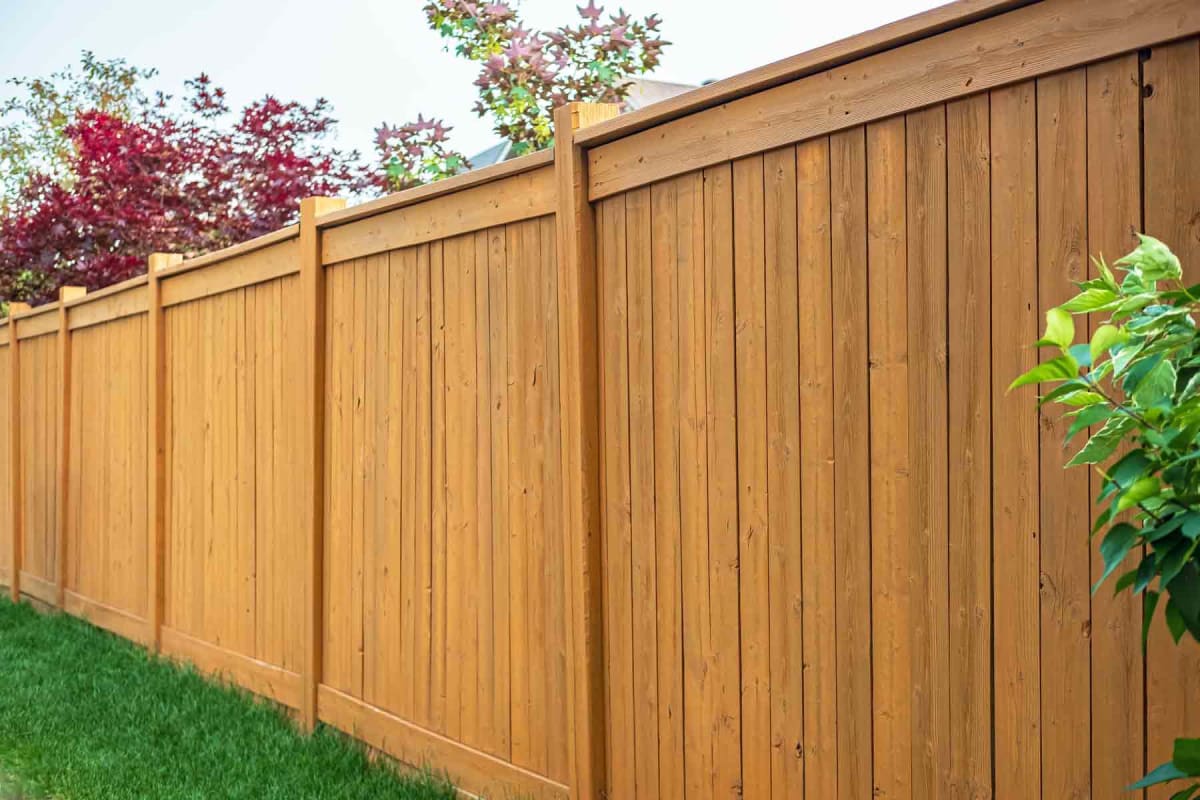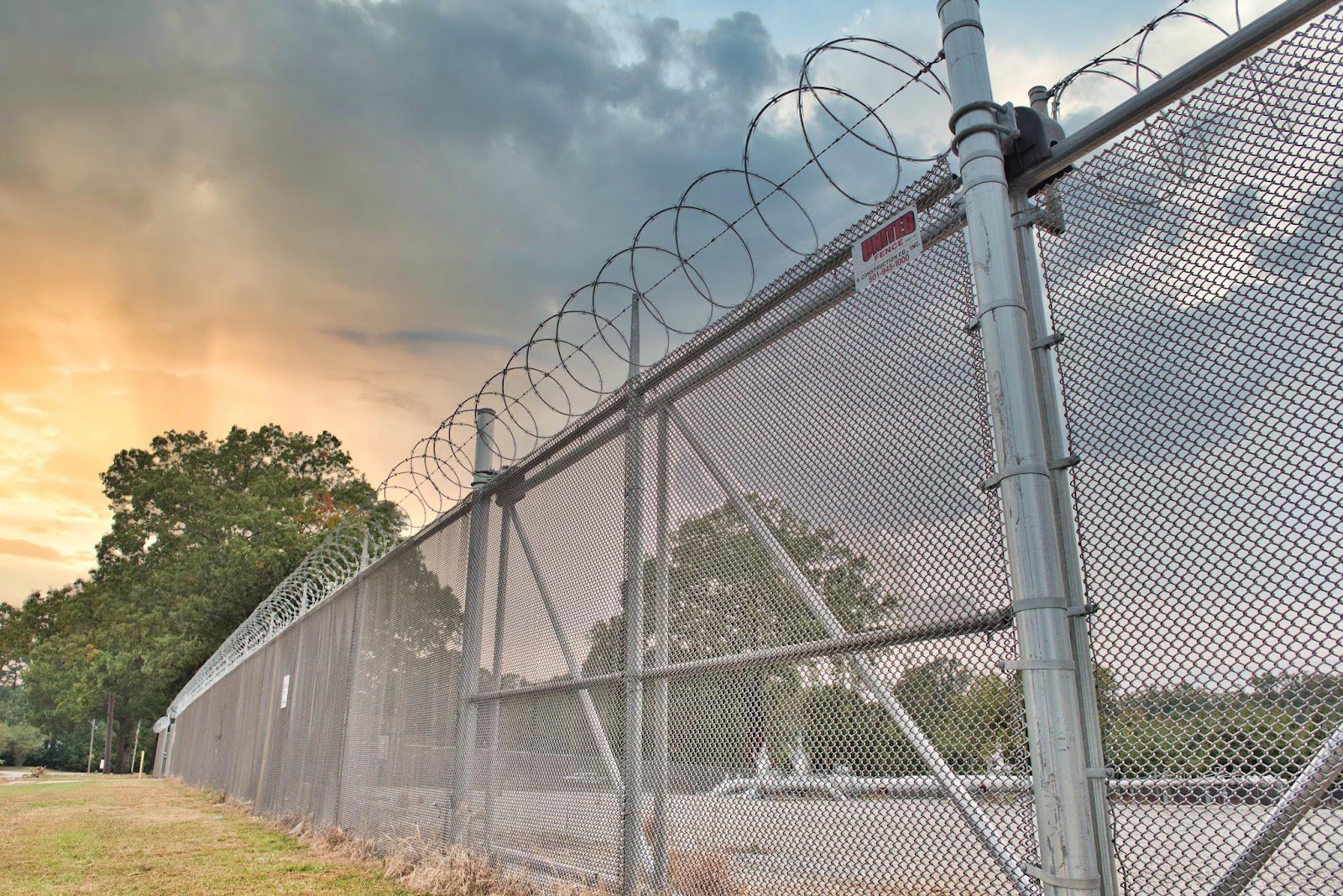All Categories
Featured
When it involves safeguarding and improving your residential or commercial property, picking the best fence material is an important choice. With a range of options readily available, choosing the most effective product for your needs requires cautious factor to consider of variables such as protection, personal privacy, aesthetic appeals, spending plan, and long-lasting maintenance. Whether you are setting up a fence for your home or organization, each product has its very own collection of disadvantages and advantages. In this comprehensive overview, we'll discover the most prominent fencing products to assist you make an educated option.
Benefits:
Natural aesthetic. High personalization (stains, paints) When developed high), good privacy (. Fairly budget-friendly. Downsides:
Needs regular maintenance (painting or staining) Prone to weather damages, insects, and rot. Much shorter lifespan compared to other products. Best For: Homeowners seeking a cozy, typical look with high personalization possibility.
Advantages:
![]()
Reduced maintenance (no painting or discoloration) Immune to weather, rot, and pests. Lasting (can last up to 30 years or even more) Range of designs and shades. Disadvantages:
Preliminary cost can be more than timber. Can fracture or damage in extreme weather (such as heavy influence) Restricted customization (contrasted to timber) Best For: Companies and house owners trying to find a low-maintenance, resilient, and durable fencing solution.
Benefits:
Protected and exceptionally resilient. Reduced upkeep (especially aluminum) Aesthetic charm (specifically wrought iron) Great for high-security locations. Disadvantages:
Can be expensive (especially functioned iron and steel) Not as private (unless integrated with various other products) Can rust (iron and steel need protective finishes) Best For: Homeowners and businesses that need additional safety and security, or those trying to find a high-end, traditional style.
Benefits:
Simple and cost effective to set up. Low upkeep. Supplies safe and secure limits. Ideal for big buildings or family pet rooms. Disadvantages:
Provides restricted personal privacy and appearance (unless incorporated with covers or slats) Can be viewed as unattractive in certain setups. Prone to rust otherwise treated. Best For: Big homes, security fencings, or locations where spending plan is a top priority over looks.
Advantages:
![]()
Low upkeep (no discoloration or sealing required) Resistant to fading, rot, and parasites. Lasting and strong. Visual allure similar to timber. Drawbacks:
Greater preliminary cost contrasted to wood. Limited personalization choices (compared to all-natural timber) Can become weak in extreme cool temperature levels. Best For: Home owners that desire the appearance of timber but with a more resilient and low-maintenance option.
Benefits:
Safe and secure and very long lasting. Reduced maintenance. Offers premium privacy and soundproofing. Includes worth to your home. Drawbacks:
High preliminary expense. Labor-intensive installment. Limited design variety (even more conventional styles) Best For: Premium property buildings or companies requiring a long lasting, safe and secure, and elegant fence.
Advantages:
Eco-friendly and sustainable. Unique and aesthetically pleasing. Very easy and light-weight to mount. Can be utilized as an attractive element. Downsides:
![]()
Prone to weathering and damage in time (unless treated) Calls for normal upkeep to avoid decomposing or splitting. Less protected than wood, stone, or metal. Best For: Eco-conscious home owners trying to find a natural and trendy fencing option.
Just How to Select the Right Product. When picking the best fencing material for your residential or commercial property, consider the list below variables:
Spending plan: Some materials like wood and chain web link are a lot more cost effective, while others, like rock and wrought iron, are extra expensive. Maintenance: If you're searching for a low-maintenance option, plastic, steel, or composite products are outstanding choices. Purpose: Consider whether your primary requirement is safety and security, personal privacy, or looks. For chain, metal or security web link fencings may be best, while wood or vinyl could fit those seeking privacy. Visual Preferences: The product you pick should enhance the design and style of your home. Wood uses a rustic charm, while steel and stone give an even more modern or official appearance. Toughness: Some materials, like vinyl and steel, deal long-lasting longevity, while others, like wood, may require even more upkeep over time. Conclusion. Choosing the ideal secure fencing product is a vital choice that affects your residential property's security, privacy, and visual appeal. With a variety of choices available, from all-natural timber to low-maintenance vinyl and resilient metal, it is very important to evaluate each product's benefits and downsides based on your details demands and preferences. Whether you are looking for a practical boundary or an attractive enhancement, this overview will assist you make the very best option for your property.
- Timber Fencing. Timber fencings are a classic and versatile option that provides all-natural charm and privacy. They can be found in different styles, consisting of picket, privacy, and post-and-rail, making them adaptable to various residential or commercial property types and choices. Wood provides a conventional, rustic beauty, suitable for household setups, and is easy to customize with paint or discolorations.
Benefits:
Natural aesthetic. High personalization (stains, paints) When developed high), good privacy (. Fairly budget-friendly. Downsides:
Needs regular maintenance (painting or staining) Prone to weather damages, insects, and rot. Much shorter lifespan compared to other products. Best For: Homeowners seeking a cozy, typical look with high personalization possibility.
- Vinyl (PVC) Secure Fencing. Plastic fencings are coming to be significantly prominent because of their durability and low maintenance demands. Made from artificial materials, vinyl fences are immune to weather, pests, and degeneration. They provide the look of timber but without the maintenance, making them a fantastic choice for both household and industrial residential or commercial properties.
Advantages:

Reduced maintenance (no painting or discoloration) Immune to weather, rot, and pests. Lasting (can last up to 30 years or even more) Range of designs and shades. Disadvantages:
Preliminary cost can be more than timber. Can fracture or damage in extreme weather (such as heavy influence) Restricted customization (contrasted to timber) Best For: Companies and house owners trying to find a low-maintenance, resilient, and durable fencing solution.
- Steel Secure Fencing (Aluminum, Steel, Wrought Iron) Metal fencings are preferred for their toughness, security, and classic elegance. Light weight aluminum and functioned iron fencings use an innovative, upscale appearance, often made use of for ornamental objectives, while steel fences are picked for their durable security functions.
Benefits:
Protected and exceptionally resilient. Reduced upkeep (especially aluminum) Aesthetic charm (specifically wrought iron) Great for high-security locations. Disadvantages:
Can be expensive (especially functioned iron and steel) Not as private (unless integrated with various other products) Can rust (iron and steel need protective finishes) Best For: Homeowners and businesses that need additional safety and security, or those trying to find a high-end, traditional style.
- Chain Link Fence. Wire mesh fence are a affordable and practical selection, especially for huge properties or locations calling for basic, practical borders. They are commonly made use of in both commercial and residential settings and can be integrated with privacy slats for added seclusion.
Benefits:
Simple and cost effective to set up. Low upkeep. Supplies safe and secure limits. Ideal for big buildings or family pet rooms. Disadvantages:
Provides restricted personal privacy and appearance (unless incorporated with covers or slats) Can be viewed as unattractive in certain setups. Prone to rust otherwise treated. Best For: Big homes, security fencings, or locations where spending plan is a top priority over looks.
- Composite Fencing. Compound fencings incorporate wood fibers and plastic to create a material that is both solid and reduced upkeep. They give the appearance of timber with the resilience of plastic and are offered in various colors and appearances.
Advantages:

Low upkeep (no discoloration or sealing required) Resistant to fading, rot, and parasites. Lasting and strong. Visual allure similar to timber. Drawbacks:
Greater preliminary cost contrasted to wood. Limited personalization choices (compared to all-natural timber) Can become weak in extreme cool temperature levels. Best For: Home owners that desire the appearance of timber but with a more resilient and low-maintenance option.
- Rock and Block Fencing. Stone and brick fencings are superb for those seeking maximum resilience and a high-end aesthetic. These fences supply unmatched security, privacy, and longevity, making them ideal for distinguished buildings or commercial buildings that need a durable barrier.
Benefits:
Safe and secure and very long lasting. Reduced maintenance. Offers premium privacy and soundproofing. Includes worth to your home. Drawbacks:
High preliminary expense. Labor-intensive installment. Limited design variety (even more conventional styles) Best For: Premium property buildings or companies requiring a long lasting, safe and secure, and elegant fence.
- Bamboo Secure fencing. Bamboo is an environmentally friendly choice that offers a natural, rustic look while offering moderate protection and privacy. It's ending up being a preferred for eco-conscious homeowners who favor an even more sustainable material.
Advantages:
Eco-friendly and sustainable. Unique and aesthetically pleasing. Very easy and light-weight to mount. Can be utilized as an attractive element. Downsides:

Prone to weathering and damage in time (unless treated) Calls for normal upkeep to avoid decomposing or splitting. Less protected than wood, stone, or metal. Best For: Eco-conscious home owners trying to find a natural and trendy fencing option.
Just How to Select the Right Product. When picking the best fencing material for your residential or commercial property, consider the list below variables:
Spending plan: Some materials like wood and chain web link are a lot more cost effective, while others, like rock and wrought iron, are extra expensive. Maintenance: If you're searching for a low-maintenance option, plastic, steel, or composite products are outstanding choices. Purpose: Consider whether your primary requirement is safety and security, personal privacy, or looks. For chain, metal or security web link fencings may be best, while wood or vinyl could fit those seeking privacy. Visual Preferences: The product you pick should enhance the design and style of your home. Wood uses a rustic charm, while steel and stone give an even more modern or official appearance. Toughness: Some materials, like vinyl and steel, deal long-lasting longevity, while others, like wood, may require even more upkeep over time. Conclusion. Choosing the ideal secure fencing product is a vital choice that affects your residential property's security, privacy, and visual appeal. With a variety of choices available, from all-natural timber to low-maintenance vinyl and resilient metal, it is very important to evaluate each product's benefits and downsides based on your details demands and preferences. Whether you are looking for a practical boundary or an attractive enhancement, this overview will assist you make the very best option for your property.
Latest Posts
Top Auto Services at Reduced Rates
Published Jan 20, 25
1 min read
Limited-Time Offers on Auto Repairs
Published Jan 20, 25
1 min read
Elevate Your Marketing Strategy with Full Circle Marketing
Published Jan 20, 25
2 min read